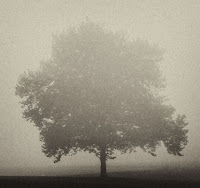Love the Holidays!
One reason that I love the holiday season is for the cultural clashes that surface. Some are more significant than others. My pal, Patricia Dalton Fennell, has produced and does vocals on Chris Pasin’s new holiday album – “Baby, It’s Cold Outside.” Therefore, this controversy is on my radar.
One reason that I love the holiday season is for the cultural clashes that surface. Some are more significant than others. My pal, Patricia Dalton Fennell, has produced and does vocals on Chris Pasin’s new holiday album – “Baby, It’s Cold Outside.” Therefore, this controversy is on my radar.
Read reviews HERE
In an interview by HLN-CNN, Carol Costello was clearly
looking for a hot button to use regarding the storm blowing around the holiday
classic song, “Baby, It’s Cold Outside.”
The song is a beautiful romantic conversation involving a
call-and-response duet with the “cold outside” excuse to prolong the lover’s
cuddle. Somehow, early in our 21st century, the “politically correct”
police began to allege that the song is sort of a date-rape anthem.
This may be somewhat of a stretch.
“Baby, It’s Cold Outside” was composed in 1944 by Frank
Loesser (Guys and Dolls and How To Succeed In Business Without Really
Trying). It was first recorded in 1948 and used in the 1949 film, Neptune’s Daughter, a romantic comedy
starring Esther Williams, Red Skelton, Ricardo Montalbán, Betty Garrett, Keenan Wynn, Xavier
Cugat and Mel Blanc. The film was very successful and has been
nominated to be one of the American Film Institute’s best musical movies. The song,
“Baby It’s Cold Outside” won the Academy Award for Best Original Song.
The context of the World War II era and the immediate
post-war years might be thought, in retrospect by some, to be “innocent” but I
think not. We were involved in the second world war of the century when the
song was written and, in the late ‘40s, the film industry was fairly
conservative in matters regarding sex due to the restrictions place upon it by
the Hays Code. In fact, “Baby, It’s Cold Outside” was a
replacement for Loesser’s “Slow Boat to China” which was thought inappropriate
by the Hays Office.
Projecting our values backwards in time is difficult. There
is no denying that the male "caveman" and his romantic methods were crude and
abusive. The evolution of male-female relationships has been slow, and
sensitivity has always been overpowered by impulse and raw emotion. We like to think of ourselves as
intelligent, rational and civilized. But, history has proven that we are not necessarily
as advanced as we often think.
My conclusion is that “Baby, It’s Cold Outside” is both
humorous and romantic. The notion of “date rape” is symptomatic of a glass
half-empty. Sure, it can be superficially viewed as date rape, but that
requires some analytical assumptions that are based on conjecture rather than
solid evidence.
The popularity of “Baby, It’s Cold Outside” with artists of
today is due to the idyllic nature of romance. There is a very polite
interaction going on. Perhaps, that is what is so romantic about it.
My pal, Patricia, is a thoughtful woman. She not only has a beautiful voice and vocal style, she is no stranger to the issue of sexual misconduct, having provided assessment and treatment for sex offenders, victims, and families in situations involving incest, assault, and school-based sex crimes.
My pal, Patricia, is a thoughtful woman. She not only has a beautiful voice and vocal style, she is no stranger to the issue of sexual misconduct, having provided assessment and treatment for sex offenders, victims, and families in situations involving incest, assault, and school-based sex crimes.
Here are some performances of the song, give a listen and
decide how you feel about it.
The album Baby, It’s Cold Outside, recorded by Chris Pasin and Friends, is at No. 45 and is this week’s “biggest gainer” on the Jazzweek jazz chart.
See also Stephen Leon's article on Patricia Dalton Fennel's blog, "Live, Care, Create"










